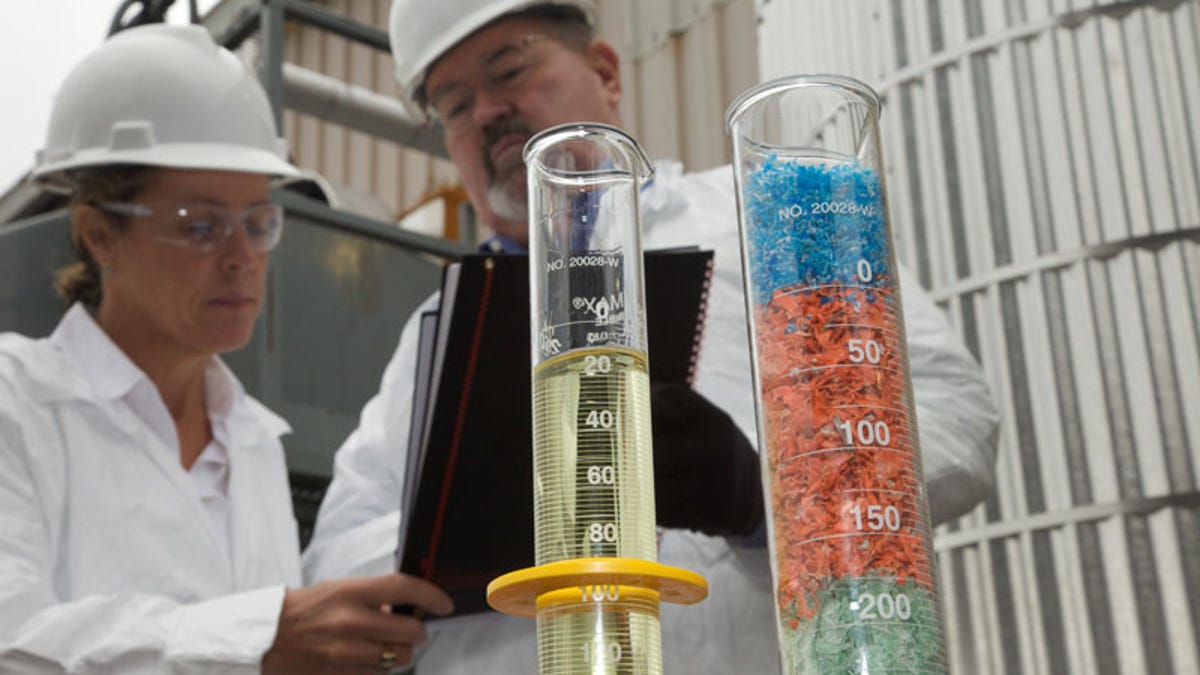Fill 'er up with plastic? Waste turned into oil
Startup Agilyx raises $25 million to finance four planned plants that will take post-recycling plastic and convert it into synthetic crude oil.

Rather than recycling plastic, startup Agilyx can bring plastic back to its original source: oil.
The Beaverton, Ore., company yesterday raised $25 million in a series C round of funding, which was led by Keating Capital and joined by existing investors Kleiner Perkins Caufield & Byers, Waste Management, an affiliate of oil company Total, and Chrysalix Energy Venture Capital.
The company, which raised $22 million in March this year, will use the money to develop four plastic-to-oil plants expected to go online in the first half of next year, according to CEO Chris Ulum. Agilyx is now operating its first pilot plant outside Portland, Ore.
The founders of Agilyx developed a method that converts different types of plastics into an "ultrasweet synthetic crude oil" which it sells to oil refiners. The oil is a low-sulfur drop-in replacement for petroleum-derived oil and is cost competitive with oil prices now in the $90 per barrel range, Ulum said.
Rather than melt down plastics, an Agilyx plant heats them in an oxygen-starved tank to the point where the material is converted into gases. The gases, which are short-chain hydrocarbons, are then condensed into an oil form, Ulum explained.
The company's process can convert about 8.5 to 10 pounds of plastic into one gallon of synthetic crude oil. Its strategy is to build plants or license its technology to waste handlers which will locate a plant at a waste collection site.
A significant amount of plastic is either not taken by recyclers or is too mixed with other garbage to be recycled, Ulum said. That provides a sufficient feedstock of plastic after recycling, he said. "If you look at what's still in your garbage every week after recycling, you'll see a fair amount of plastic in most municipalities," he said.
About 7 percent of the world's oil supply is used to make plastics, so converting post-recycling plastic can't match current oil consumption in the U.S. "Even if we capture 100 percent of the crude oil used to make plastic and turn it back into synthetic oil, it's not going to eliminate the need for crude oil," Ulum said.

